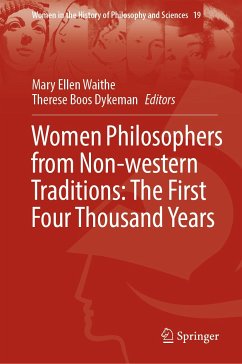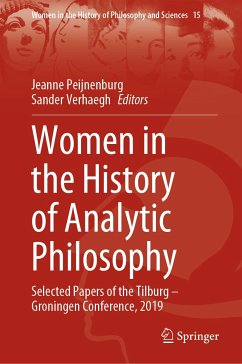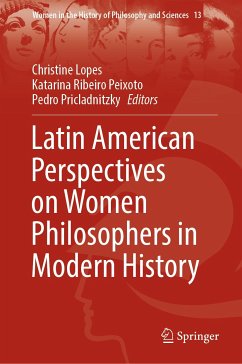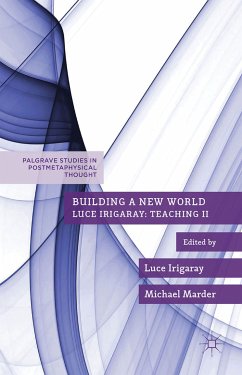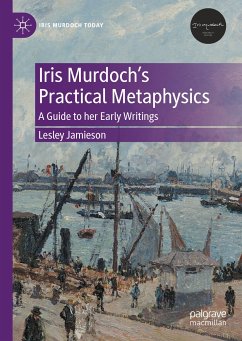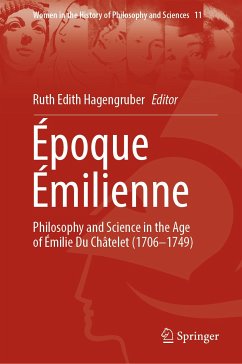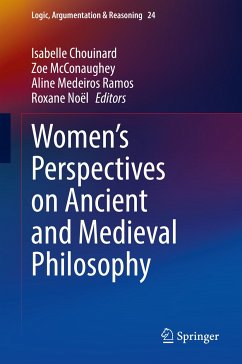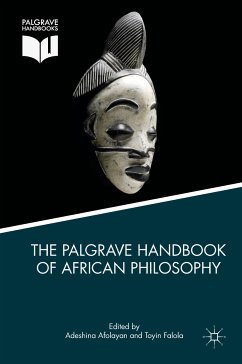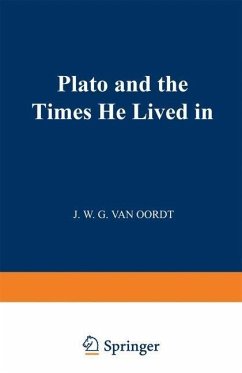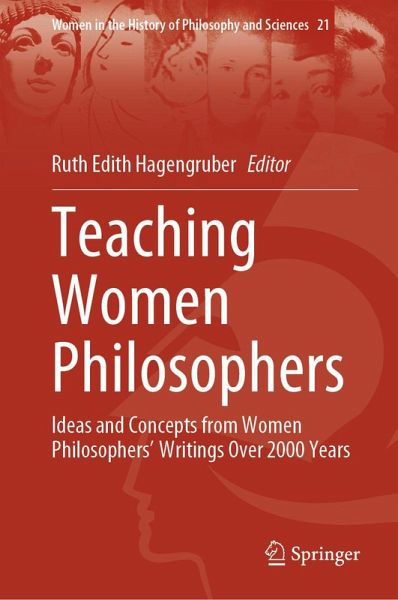
Teaching Women Philosophers (eBook, PDF)
Ideas and Concepts from Women Philosophers' Writings Over 2000 Years
Redaktion: Hagengruber, Ruth Edith
Versandkostenfrei!
Sofort per Download lieferbar
112,95 €
inkl. MwSt.
Weitere Ausgaben:

PAYBACK Punkte
56 °P sammeln!
This book expands the known canon by presenting arguments and concepts from women philosophers, from all periods of the history of philosophy, from antiquity to the present day. The collaborative collection is an undertaking that emerged from intensive discussions on how to expand the philosophical canon, which formed the conclusion of the Libori Summer School 2019. This Libori Summer School, the third in a row, was held to enhance the study of texts written by women philosophers from Antiquity up to now and intended to give opportunity to young scholars to connect and to build networks.Presen...
This book expands the known canon by presenting arguments and concepts from women philosophers, from all periods of the history of philosophy, from antiquity to the present day. The collaborative collection is an undertaking that emerged from intensive discussions on how to expand the philosophical canon, which formed the conclusion of the Libori Summer School 2019. This Libori Summer School, the third in a row, was held to enhance the study of texts written by women philosophers from Antiquity up to now and intended to give opportunity to young scholars to connect and to build networks.
Presenting such a collection is even more urgent today because a diversification of the canon has long been called for. Nevertheless, to date there is little explicit material available for this purpose. To make this book suitable for both academics and students, it is structured in such a way that readers can use excerpts and individual chapters from it that suit their needs, be it in moral philosophy, politics, or phenomenology, etc. Containing chapters on women such as Suor Juana, Emilie Du Châtelet, and Nisia Floresta and supplemented by contextualization, namely by some brief biographical information and by the systematic integration of her argument into the debates of the respective periods, this book is an important resource highlighting the achievements and value of women in philosophy and calling for a further diversification of the canon.
Presenting such a collection is even more urgent today because a diversification of the canon has long been called for. Nevertheless, to date there is little explicit material available for this purpose. To make this book suitable for both academics and students, it is structured in such a way that readers can use excerpts and individual chapters from it that suit their needs, be it in moral philosophy, politics, or phenomenology, etc. Containing chapters on women such as Suor Juana, Emilie Du Châtelet, and Nisia Floresta and supplemented by contextualization, namely by some brief biographical information and by the systematic integration of her argument into the debates of the respective periods, this book is an important resource highlighting the achievements and value of women in philosophy and calling for a further diversification of the canon.
Dieser Download kann aus rechtlichen Gründen nur mit Rechnungsadresse in A, B, BG, CY, CZ, D, DK, EW, E, FIN, F, GR, HR, H, IRL, I, LT, L, LR, M, NL, PL, P, R, S, SLO, SK ausgeliefert werden.



